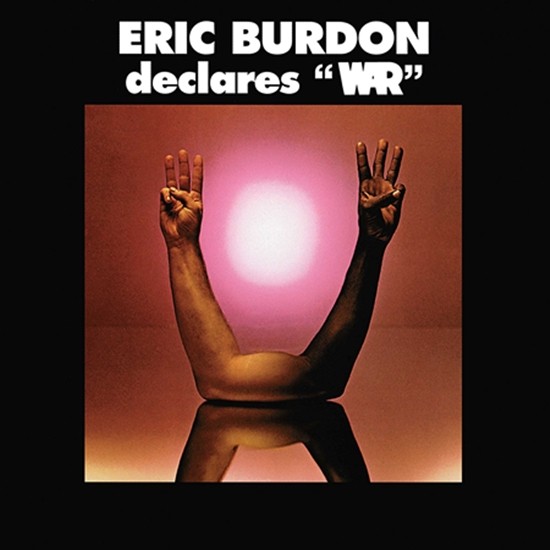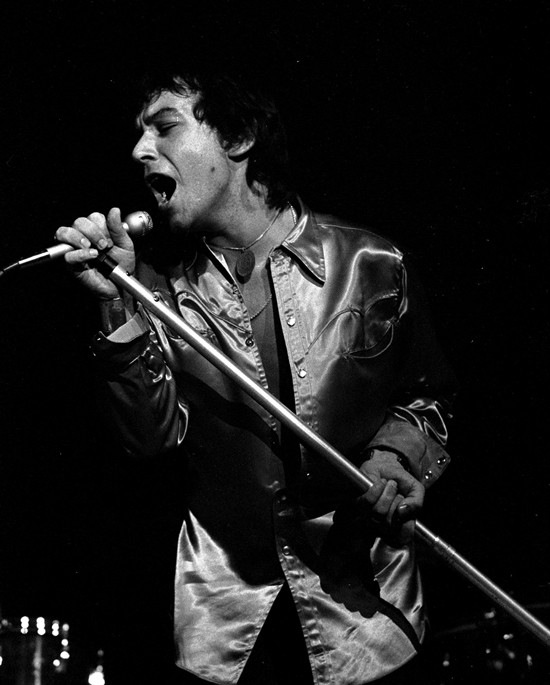
 “We the people have declared war against the people for the right to love each other”.
“We the people have declared war against the people for the right to love each other”.
Personally I prefer this second title, but then record companies can be such picky people. Eric Burdon and War was one of those unstable combinations that throws out sparks and heat even as it heads toward meltdown. Looking back it seems amazing that the team up of a British blues/rock singer, a freaked out Danish harmonica player and a Los Angeles–based R&B/jazz/Latin sextet happened at all. The combined mixture of ethnic background and musical influences created a sound that was as hard to classify and exciting as it was to listen to. Eric Burden and War ran that fine line between genius and total excess as their star blazed a fluorescent trail across the musical stratosphere.
The career of the band lasted only two years and two albums, (1969 – 71) and during this brief time together they performed with a sense of daring, risk, imagination, and adventure.
“Eric Burdon declares War” was the first and most successful of the two albums (the other “Black Man’s Burdon” being released the following year) and was recorded after nearly a year of touring. The band went in to the studio and laid down what they were playing on stage with very little overdubs and plenty of ad-libbing.
The music captures the kinetic interplay between Burdon and his band mates. Their ability to communicate with and improvise off each other gives “Declares War” its power and its glory. The tension between Burdon’s unpredictable nature, War’s polished instrumental skills, and Lee Oskar’s reckless jamming harmonica runs through the music.
Burdon was an artist with a definite message, and working with a multi-racial band was part of his statement. “War” wasn’t a name to be chosen lightly in 1969 (or even now come to that). It acknowledged both cultural and artistic conflicts and challenged audiences to deal with such issues – at least that’s my slant looking at the moniker’s meaning.
The free flowing approach of the album starts immediately with “The Vision Of Rassan”. With its name checks to Charlie Parker and John Coltrane, this was the band’s tribute to jazz reed player Roland Kirk, and whets the musical palate for what is to come.
From there, Burdon leads the band into an expanded and exploratory version of “Tobacco Road”. The song had previously been a hit for the Nashville Teens but not much of their version remains as Burdon uses the lyrics as a springboard for an odd erotic sermon, nailed down by War’s tight support play.
The albums best known track “Spill The Wine” is a Latin tinged daydream of a song which became a number 3 in the U.S.A and a number one in the rest of the world.
“Mother Earth” an old blues standard gives us the main theme for the 13 minutes of “Blues For Memphis Slim” and as the band coasts along, Burdon expounds upon sex, birth, and morality, stepping aside to allow Charles Miller and then Lee Oskar to strut their stuff.
The album concludes with the vocal workout “Your No Stranger”, a nice return to normality after what has gone before.
The year after this album was recorded, the partnership dissolved but fortunately the music survives and represents a remarkable combination of divergent ancestries and united talents.

Track List:
The Vision Of Rassan
Tobacco Road
Spill The Wine
Blues For Memphis Slim
You’re No Stranger
Musicians:
Eric Burdon – lead vocals
Lee Oskar – harmonica
Lonnie Jordan – organ, piano
Harold Brown – drums
Dee Allen – conga, percussion
Bee Bee Dickerson – bass, vocal
Howard Scott – guitar, vocal
Charles Miller – tenor sax, flute
 |
 |
 |





